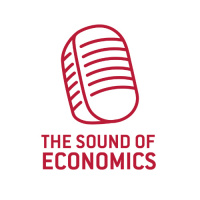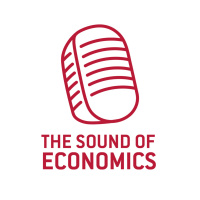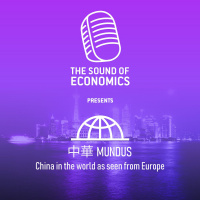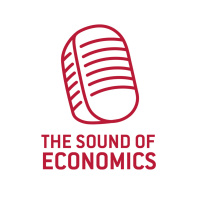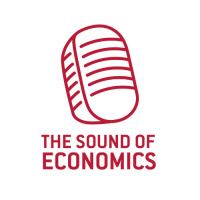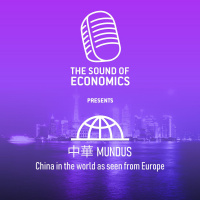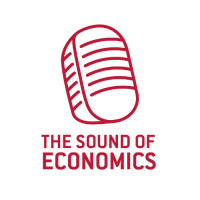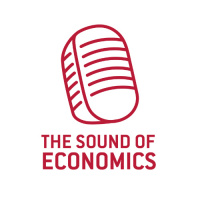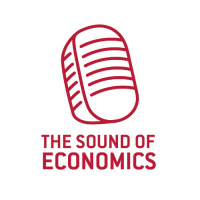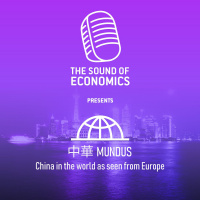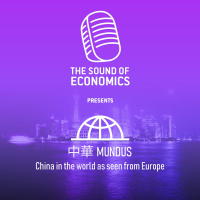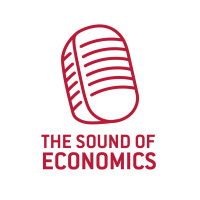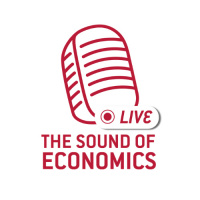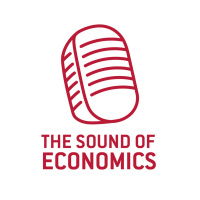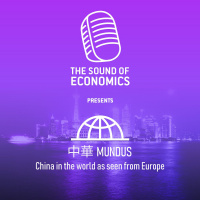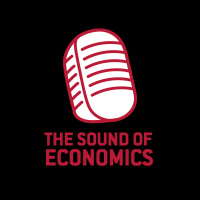Sinopsis
Bruegel is the European think tank working in the field of international economics. Established in 2005, Bruegel is independent and non-doctrinal. It seeks to contribute to European and global economic policy-making through open, fact-based and policy-relevant research, analysis and debate.
Episodios
-
Economic policy wrapped up 2022
21/12/2022 Duración: 55minRussia’s invasion of Ukraine changed the course of the year 2022. In this episode of The Sound of Economics, Giuseppe Porcaro invites Maria Demertzis, André Sapir and Jeromin Zettelmeyer to unfold the impact of the war, energy crisis and inflation, European responses to these incidents, continued confrontations on the global stage and their implications on the world. Following Bruegel’s end-of-year tradition, the guests also each introduce a book, movie or TV series that resonated with them in 2022. Publications mentioned in the podcast: National fiscal policy responses to the energy crisis, Dataset by Giovanni Sgaravatti, Simone Tagliapietra and Georg Zachmann The European Commission's fiscal rules proposal: a bold plan with flaws that can be fixed, Blog by Olivier Blanchard, André Sapir and Jeromin Zettelmeyer Is the EU fiscal rules reform going in the right direction? Podcast with Grégory Claeys, Zsolt Darvas, Maria Demertzis and Jeromin Zettelmeyer Rewriting the rulebook of the EU fiscal fram
-
Transatlantic Perspectives on Digital Automation Technologies
16/12/2022 Duración: 37minChatGPT is the latest example of technology that appears to be able to execute tasks that would have required the services of high level academics not too long ago. Similar AI initiatives are taking place across the world, which begs the question: is automation coming for knowledge work next? In this episode of the Sound of Economics, Giuseppe Porcaro invites Maria Savona, Professor of Applied Economics at the Department of Economics at LUISS University, Rome and Professor of Economics of innovation at SPRU, Science Policy Research Unit at the University of Sussex, UK, and David Autor, Ford Professor in the MIT Department of Economics, to discuss different perspectives and lessons from the US and Europe on the design of digital automation technologies and their implications for the future of work. This podcast was produced within the project "Transatlantic expert group on the future of work", with the financial support of the European Union. Its contents are the sole responsibility of Bruegel, AISBL and Th
-
China-India relations and their impact on Europe
14/12/2022 Duración: 36minIndia has recently surpassed the United Kingdom to become the fifth largest economy in the world, standing directly behind the US, China, Japan and Germany. As its GDP growth is estimated to be between 8% to 10.5%, India is certainly rising into the ranks of stable economic growth like China succeeded to do in the 1990s. But what do these two countries have in common, and what do their bilateral relations mean for the rest of the world? In this podcast, Giuseppe Porcaro invites Alicia García-Herrero, Senior fellow at Bruegel and Jagannath Panda, Head of the Stockholm Centre for South Asian and Indo-Pacific Affairs, to discuss the growing importance of China-India relations, and why they matter for Europe and the rest of the world. This episode is part of the ZhōngHuá Mundus series of The Sound of Economics. ZhōngHuá Mundus is a newsletter by Bruegel, bringing you monthly analysis of China in the world, as seen from Europe. Sign up now to receive it in your mailbox!
-
The charm of central bank digital currencies in a polarised world
08/12/2022 Duración: 39min95 percent of the world economy (measured by GDP) is exploring the idea of launching a central bank digital currency (CBDC), and many countries including Nigeria and China are entering into the close-to-launch or fully launched phase. But what is the hype about? In this episode of the Sound of Economics, Maria Demertzis invites Grégory Claeys and Josh Lipsky to discuss the purpose of having a CBDC from both a retail and a wholesale perspective. Particularly, they raise the geopolitical importance of CBDCs, with the example of the G7’s financial sanctions against Russia that ruled out several Russian banks from the SWIFT system and froze Russian Foreign Exchange Reserves. However, if CBDCs are largely implemented, whilst they could help the EU achieve more autonomy in international finance, they could also be used by countries to bypass western sanctions and challenge the dollar hegemony in the current international financial system.
-
Democracy does not die with a bang but a whimper
30/11/2022 Duración: 40minAuthoritarianism is becoming increasingly normalised in the 21st century. As anti-democratic movements take root globally in a wide range of demographic and socioeconomic groups, democracy is constantly under threat. In many countries, democratically elected autocratic movements threaten to erode the foundations of the systems they work within, aiming to sow division while offering no real change. Will this be the final retreat of global democracy? In this episode of the Sound of Economics, Giuseppe Porcaro invites Pranab Bardhan who is a Distinguished Professor Emeritus of Economics at the University of California, Berkeley and Heather Grabbe who is a senior adviser to the Open Society Foundations, to discuss democratic backsliding in the world, its economic underpinnings and what can be done to combat these challenges.
-
Reflections on COP27
23/11/2022 Duración: 42minIn this episode of the Sound of Economics Live, Giuseppe Porcaro invites John Murton, Johanna Nyman and Simone Tagliapietra look at what was said and decided at this year's COP27 in Egypt. What are the preliminary impressions? Are we delivering on the Paris Agreement and how efficient is COP in getting there? They discuss these and more questions while unpacking the meeting.
-
Is the EU fiscal rules reform going in the right direction?
22/11/2022 Duración: 50minOn 9 November, the European Commission presented its long-awaited proposal for a reformed EU economic governance framework. The proposal intends to focus on medium-term risks to debt sustainability and to allow flexibility to boost growth and investments and move away from yearly micro-management of unobservable public finance variables. Maria Demertzis invites Jeromin Zettelmeyer, Grégory Claeys and Zsolt Darvas to share their views on the reform proposal.
-
Lessons from China’s semiconductor technology push
16/11/2022 Duración: 37minFrom cars and phones to satellite technology, semiconductors play a key role in many of our modern utilities and consumer goods. As such, semiconductors are China’s main import item and an essential component of a lot of its exports. Since the US push to restrict this trade, China has been investing heavily on its semiconductor industry, to reduce their dependence on the rest of the world. In this episode of The Sound of Economics, Giuseppe Porcaro is joined by Bruegel’s Alicia García-Herrero and Jason Hsu, a Senior Research Fellow at The Ash Centre for Democratic Governance and Innovation Harvard Kennedy School, to discuss China’s semiconductor policies, as well as its implications and lessons for Taiwan and the rest of the world. This episode is part of the ZhōngHuá Mundus series of The Sound of Economics. ZhōngHuá Mundus is a newsletter by Bruegel, bringing you monthly analysis of China in the world, as seen from Europe. Sign up now to receive it in your mailbox!
-
Changing labour markets, changing social protection
09/11/2022 Duración: 30minSocial protection is the mechanism that addresses amongst other issues, poverty reduction, education, health, social inclusion, and empowerment. In the United States and in Europe social protections were initially designed between 1880 and 1945 with the full-time, dependent employee in mind. In this episode of The sound of economics, Giuseppe Porcaro invites Anke Hassel and Kathleen Romig to discuss the challenge that confronts the United States and Europe, in the context of a changing labour market and the increase in nonstandard work. This podcast was produced within the project "Transatlantic expert group on the future of work", with the financial support of the European Union. Its contents are the sole responsibility of Bruegel AISBL and The German Marshall Fund of the United States and do not necessarily reflect the views of the European Union.
-
The dominance of the platform economy
02/11/2022 Duración: 39minThe Internet was supposed to liberate us from powerful institutions. But the reality might be he who fights too long against dragons becomes a dragon himself. In this episode of the Sound of Economics, Giuseppe Porcaro and Fabian Stephany invite Vili Lehdonvirta to present his latest book, Cloud Empires, where he explains how Silicon Valley technologists end up recreating digital forms of the very institutions that they were trying to render obsolete. They also discuss the labour market. This podcast was produced within the project “Future of Work and Inclusive Growth in Europe“, with the financial support of the Mastercard Center for Inclusive Growth.
-
Is the world economy headed for recession?
26/10/2022 Duración: 37minIn this episode of The Sound of Economics, Maria Demertzis and Grégory Claeys are joined by Ayhan Kose, Chief Economist of Equitable Growth, Finance, and Institutions (EFI) and Director of the Prospects Group at the World Bank, and co-author of the report ‘Is a Global Recession Imminent?’. Together they look at the global trends of rising inflation and slowing growth, discuss whether the world is heading into a recession; or, if a recession is inevitable, whether a soft-landing would be possible and how it could be achieved. (This podcast was recorded on 6th October 2022)
-
Decoding China’s 20th Party Congress
18/10/2022 Duración: 31minThe 20th National Party Congress of the Chinese Communist Party commenced on 16 October and will run for seven days. The Congress takes place every five years and is the most important political event in the People’s Republic of China. Giuseppe Porcaro and Alicia Garcia-Herrero invite Chenggang Xu, Senior research fellow at Stanford Center on China’s Economy and Institutions to navigate the decisions that are to be taken in this gathering and whether they meet the predictions. This episode is part of the ZhōngHuá Mundus series of The Sound of Economics. ZhōngHuá Mundus is a newsletter by Bruegel, bringing you monthly analysis of China in the world, as seen from Europe. Sign up now to receive it in your mailbox!
-
China's rise in the Western Balkans
12/10/2022 Duración: 50minThe rise in Chinese influence in the Western Balkans over the last decade is among the most significant geopolitical developments in Europe. As an element of Beijing’s wide internationalisation efforts to expand its global footprint, the country has been working to improve its position in several key sectors, from energy and infrastructure to culture, education and media. A lot of these investments are linked to the Belt and Road initiative. Giuseppe Porcaro and Alicia García-Herrero invite Mira Milosevich-Juaristi to help navigate the Chinese investments in the Balkans and their strategic importance and what this means for Europe. This episode is part of the ZhōngHuá Mundus series of The Sound of Economics. ZhōngHuá Mundus is a newsletter by Bruegel, bringing you monthly analysis of China in the world, as seen from Europe. Sign up now to receive it in your mailbox!
-
Inequality across the atlantic
05/10/2022 Duración: 42minThe COVID-19 pandemic, Russian invasion of Ukraine, energy crisis and the resulting high inflation have created new worries about inequality on both sides of the atlantic. Labour markets and occupations have gone through profound changes as a result of technological progress, globalisation and changes to labour market institutions, among many other factors. In this episode of the Sound of Economics, Giuseppe Porcaro hosts Indivar Dutta-Gupta, President & Executive Director, CLASP Center for Law and Social Policy, and István György Tóth, Director of Tarki Social Research Institute, for a conversation about the evolving nature of inequality on both sides of the Atlantic, what are the drivers of this wedge and what policy tools are needed to address it. This was produced within the project "Transatlantic expert group on the future of work", with the financial support of the European Union. Its contents are the sole responsibility of Bruegel AISBL and The German Marshall Fund of the United States and do not
-
What should the European Political Community look like?
05/10/2022 Duración: 47minThe European Political Community is a new political grouping proposed by the French president Emmanuel Macron that would include the EU countries, the Balkans, and other nearby states including the United Kingdom. On 6 October 2022, the first meeting of this new configuration will take place. In this live podcast co-organised with Open society foundations and German Council on Foreign Relations, Giuseppe Porcaro invites Jean Pisani-Ferry, Daniela Schwarzer, Shahin Vallée, as well as Milica Delević and Hlib Vyshlinsky, to envision what this grouping should look like and its functions. Relevant publication: Mayer, F., J. Pisani-Ferry, D. Schwarzer and S. Vallée (2022) ‘Enlarging and deepening: giving substance to the European Political Community', Policy Contribution 15/2022, Bruegel
-
Learning from the European Central Bank's policy mistakes
28/09/2022 Duración: 40minIn July 2022, by the time the European Central Bank (ECB) lifted its deposit rate from negative to zero, headline inflation in the euro area had reached 8.9%. Irrespective of the drivers of inflation – a temporary supply shock or lasting demand shock – it is shocking that a central bank with a price stability mandate keeps its main interest rate negative while inflation accelerates that much. Something clearly went wrong. With the benefit of hindsight, it is easy to say that the ECB made mistakes. But should the ECB have acted differently, given the information available at the time of its monetary policy meetings? In this episode of the Sound of Economics, Bruegel Director Jeromin Zettelmeyer and Senior fellow Zsolt Darvas sit down to discuss the ECB’s six lapses in tackling inflation, uncertainties surrounding the euro area's economy and what could have been done differently.
-
Will Ukraine’s refugees return?
21/09/2022 Duración: 26minUkraine, a country of over 40 million people, has seen about 15% of its population flee the country. Will many that have fled Ukraine return, or will families eventually be reunited abroad, possibly implying an even greater inflow of Ukrainians into Europe and elsewhere when the war is over? Giuseppe Porcaro sits down with Pauline Weil to discuss the implications of Ukrainian refugees’ situation for Ukraine and its future reconstruction efforts, for receiving countries and for the EU Common European Asylum System, as analysed in her paper co-authored with Uri Dadush: ‘Will Ukraine’s refugees go home?' Check our special podcast series, War in Ukraine, which reflect on the implications of Russia’s war in Ukraine in EU energy storage, macroeconomic implications, international finance system and more.
-
Assessing the State of the Union 2022
14/09/2022 Duración: 43minOn 14 September 2022 Ursula von der Leyen, President of the European Commission, delivered the State of the Union address before the European Parliament. In this episode of The Sound of Economics Live, Giuseppe Porcaro hosts Maria Demertzis, André Sapir, Jeromin Zettelmeyer and Georg Zachmann to evaluate the State of the Union address, from the support to Ukraine, energy crisis, recovery plans, as well as the EU’s external policies.
-
Can China get its economy back on track?
14/09/2022 Duración: 33minChina’s GDP growth plummeted to only 0.4% YoY in Q2 2022, the worse performance after Q1 2020 when the first wave of COVID-19 hit Wuhan. Apart from the economic turbulence, a major political event to look out for is the 20th National Congress of the Chinese Communist Party, to be held on 16 October 2022. What should we expect from this gathering and what economic impact will it have? Giuseppe Porcaro discusses with Alicia García-Herrero and XU Sitao. This episode is part of the ZhōngHuá Mundus series of The Sound of Economics. ZhōngHuá Mundus is a newsletter by Bruegel, bringing you monthly analysis of China in the world, as seen from Europe. Sign up now to receive it in your mailbox!
-
Re-revisiting The European Union’s energy crisis
08/09/2022 Duración: 47minEurope’s energy system faces unprecedented physical and institutional stress. Jeromin Zettelmeyer sits down with Simone Tagliapietra and Georg Zachmann to discuss the causes of the problem, and what solutions could be offered. Simone and Georg present their recent paper ‘A grand bargain to steer through the European Union’s energy crisis’, where they argue an integrated European approach and a coordinated plan is essential to address the crisis.

